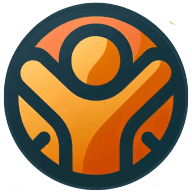How a Hobby Can Help You Embrace Failure as a Learning Opportunity
Failure is often seen as a setback, but it can be a powerful catalyst for growth and learning. This article explores how everyday hobbies can transform our perspective on failure, turning it into a valuable opportunity for personal development. Drawing on insights from experts in various fields, we'll discover how activities like card collecting, cooking, and fitness can teach us to embrace challenges and learn from our mistakes.
- Card Collecting Teaches Patience
- Cooking Failures Spark Innovation
- Gym Journey Transforms Fear into Progress
Card Collecting Teaches Patience
I have several hobbies, most of which revolve around physical exercise or watching, playing, and coaching sports. For example, I enjoy running. Failure is often associated with running when I aim to achieve a particular time or distance. As I age, accomplishing these goals becomes increasingly difficult.
That said, my favorite hobby has always been card collecting, specifically set building. I love manually completing football or baseball card sets. In the hobby, we refer to this as hand-collation. While I could simply purchase a complete set produced by the manufacturer or assembled by another hobbyist or dealer, I prefer the "chase," where failure and frustration are common. Additionally, I have a goal of completing a set for a certain price, which requires diligence and perseverance.
Here is an example of what I mean: 1992 Bowman Baseball. It is a 705-card set that many collectors regard as one of the greatest sets ever. In 1992, I bought several packs of 1992 Bowman Baseball at my local Walmart. At that time, I owned about 100 cards from the overall collection.
As the years passed, I would occasionally buy a few cards from that set. By around 2000, I had collected about 150 cards in the set. For several years, I didn't actively pursue card collecting. However, in 2010, I reignited my interest and worked diligently to locate the remaining cards in the set. I turned to eBay, Craigslist, local card shops, and dealers at shows. Eventually, by about 2020, I had accumulated around 550 cards in the set.
But it hasn't been easy. Many times, I've been outbid for lots or partial sets from online sellers. I set a price and don't go above it. I want to complete the set for the price I have in mind. It has been over 30 years since I first started building this set. Hopefully, I'll complete it within the next 5 to 10 years!
What have I learned? Patience makes the pursuit much more worthwhile.

Cooking Failures Spark Innovation
For me, cooking has been the most powerful hobby for learning how to bounce back from setbacks. One failed dish taught me more about patience and problem-solving than any business book.
Years ago, I tried to make a traditional Cantonese roast duck for a family dinner. I followed every step carefully, or so I thought, but when I pulled it from the oven, the skin wasn't crispy, the meat was dry, and I'd timed the sides all wrong. It was a mess.
I was embarrassed, especially since food is a big part of how I connect with people. But instead of tossing it out and giving up, I decided to treat it like a design issue, just like I would with a fitness machine that didn't perform the way I wanted. I rewatched a few cooking tutorials, learned about air-drying techniques, and adjusted the oven temperature curve. The next time, it came out much better. A few rounds later, it became a go-to dish I now serve during holidays.
What I took from that is simple: failure stings less when you treat it as feedback. Cooking lets you experiment, make mistakes, and try again without too much pressure. That mindset has helped me in business too, especially when a prototype fails or a shipment gets delayed. You fix it, test again, and get better.

Gym Journey Transforms Fear into Progress
When I first decided to begin my health and fitness journey, the gym was incredibly daunting. On my first day, I marched into the gym, attempting to portray confidence. Still, a wave of unfamiliar sounds sparked anxiety about misusing the complex machines and facing potential embarrassment. My first solo attempts were awkward and not what I considered a good workout. This only amplified my fear of embarrassing myself in public and threatening my motivation.
However, the desire for better health pushed me to seek guidance in learning how to use the equipment properly. I asked a gym-savvy friend to be my gym buddy and guide me through how the machines worked and how to create a workout out of their integration. Someone to help demystify the equipment, replacing fear with growing competence and confidence in my ability. Occasional awkward moments still happened - a misplaced pin here, a slightly too-enthusiastic grunt there - but knowing I had support made a world of difference, shifting my focus to progress instead of anxiety that I did not know how to do anything and looked the part. Overcoming that initial embarrassment came from actively seeking knowledge and advice from someone I knew was passionate about my hobby.
That initial hurdle of embarrassment at the gym, born from not knowing how to work out with machines, taught me a valuable lesson about approaching intimidating situations. Instead of letting fear paralyze me, actively seeking help in achieving my goal of learning this new hobby proved to be the key to overcoming my anxieties and ultimately achieving my goals. The willingness to look a little foolish in the short term paved the way for confidence and competence in the long run.


